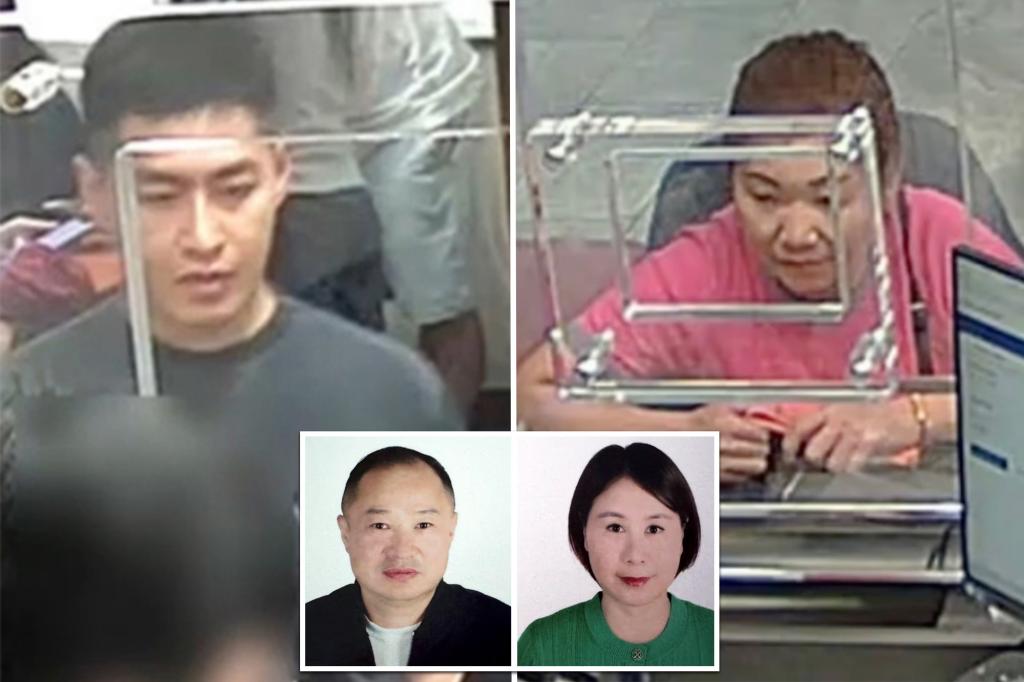Long Island Couple Missing as Bank Fraud Case Unfolds
In a troubling case that combines financial fraud with a mysterious disappearance, federal authorities are searching for Yinye “Roy” Wang, a 36-year-old Long Island resident who failed to appear at his federal court arraignment Monday. Wang is charged with stealing nearly $3 million from the bank accounts of a missing couple, Paishuan Fan and Juanjuan Zwang, who vanished from their Old Brookville home on April 2. Judge James M. Wicks issued an arrest warrant for Wang, simply stating, “Once apprehended we will arrange for his arraignment.” While Wang was nowhere to be found, his alleged accomplice, Quiju Wu, a 55-year-old Queens resident, did appear in court to face the charges against her. The case has drawn significant attention not only for the substantial fraud allegations but also because the victims’ whereabouts remain unknown, leaving their two sons without parents and investigators with troubling questions.
The missing couple, Fan, 48, and Zwang, 44, had purchased their $3.8 million Old Brookville mansion with cash after emigrating from China in 2022. Their disappearance in April set off alarm bells, but it was the subsequent drainage of their bank accounts that led to the current criminal charges. According to prosecutors, hundreds of thousands of dollars were withdrawn or transferred from the couple’s accounts between July and August—months after they went missing. The criminal complaint details that both victims were somehow added to Wu’s account at some point, listed as “joint with rights of survivorship,” an arrangement that allowed the alleged fraudsters to access a total of $2.8 million. This sophisticated financial scheme suggests careful planning and manipulation of banking protocols that should typically protect customers from unauthorized access to their funds.
Security camera footage places Wu inside two Queens banks where some of the fraudulent transactions occurred, and on at least one occasion, Wang was seen accompanying her. Wang’s history of identity theft claims adds another troubling dimension to the case, suggesting a pattern of behavior rather than an isolated incident. Wu was arrested earlier this month in Texas and remained in federal immigration custody before her appearance in the Long Island federal courtroom on Monday. Wang, meanwhile, had been arrested in California but was released on bond pending Monday’s court appearance—an appearance he ultimately failed to make. His absence raises questions about whether he’s attempting to flee prosecution, especially given the serious nature of the charges and the substantial evidence prosecutors appear to have gathered against both defendants.
Wang’s attorney, Felipe Garcia, offered an explanation for his client’s absence, telling the judge that he last heard from Wang nearly a week ago. According to Garcia, Wang claimed he was not allowed to board a plane to New York because he lacked a passport or the Real ID now required for domestic flights. Wang reportedly told his attorney that he would drive across the country to make his court appearance, but Garcia has not heard from his client since that conversation. This explanation has been met with skepticism from authorities, who now must locate Wang while simultaneously pursuing the case against Wu and continuing to investigate the couple’s disappearance. The timeline—Wang’s arrest in California, release on bond, and subsequent disappearance—has raised concerns about the conditions of his pre-trial release and whether adequate monitoring was in place.
The most disturbing aspect of this case remains the unknown fate of Fan and Zwang. Nassau County police continue to investigate their disappearance, though no charges have been filed specifically related to what happened to the couple. The last known sighting of Fan and Zwang was particularly poignant—they had dinner with their sons, aged 12 and 20, along with some of the younger child’s friends the night before the children departed for a trip to the Catskills the next morning. When the children returned, their parents were gone, with no explanation and no communication since. This family dinner now stands as the final known interaction between the parents and their children, adding a heartbreaking dimension to an already troubling case of financial fraud.
As authorities continue their search for Wang and investigate what happened to Fan and Zwang, the case highlights several troubling vulnerabilities in our financial and immigration systems. How were the alleged perpetrators able to add the victims to bank accounts without proper verification? What safeguards failed that allowed $2.8 million to be transferred without triggering immediate investigations? And perhaps most importantly, what happened to Fan and Zwang, who came to America presumably seeking opportunity and security, only to vanish from their luxury home? While the financial crimes are being addressed through the federal court system, the human tragedy at the center of this case—two children left without their parents and a community left wondering what happened to their neighbors—remains unresolved. The intersection of financial fraud, potential immigration issues (given Wu’s custody status), and a mysterious disappearance makes this case particularly complex for investigators and deeply unsettling for the public.










